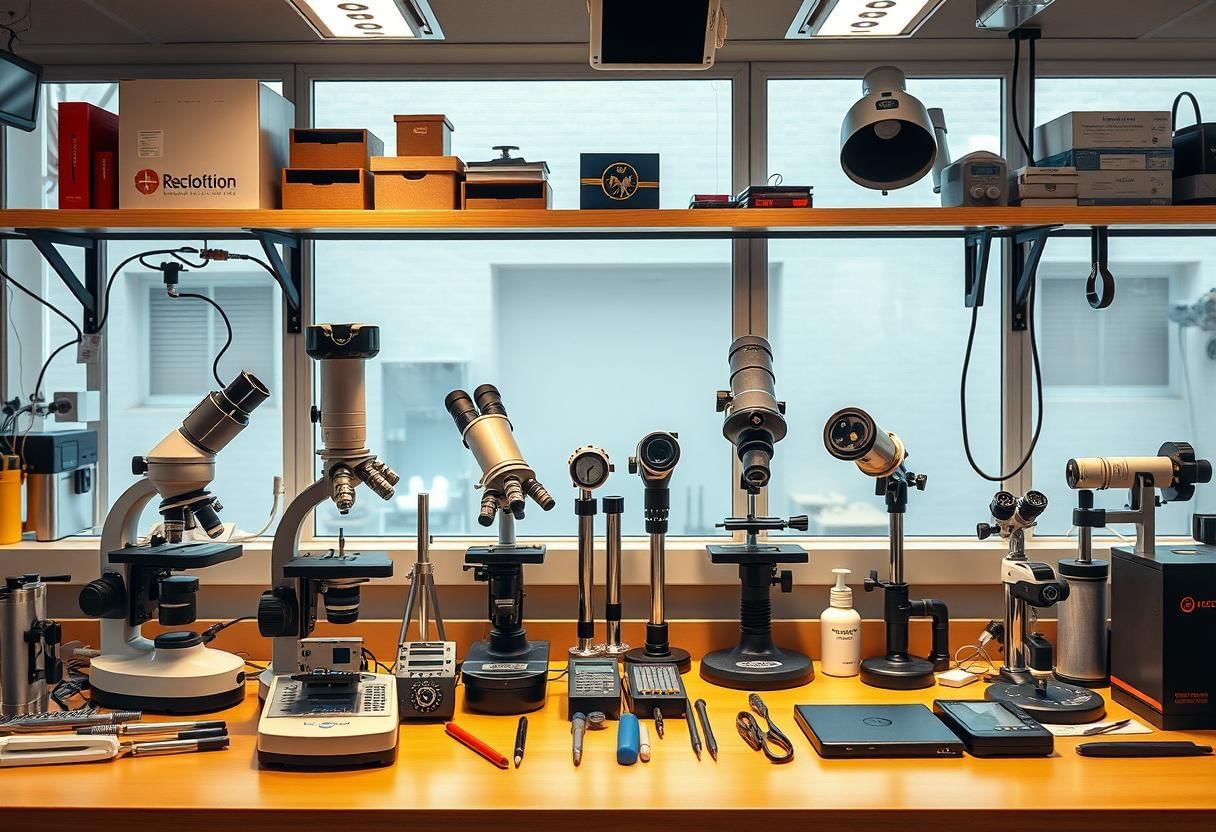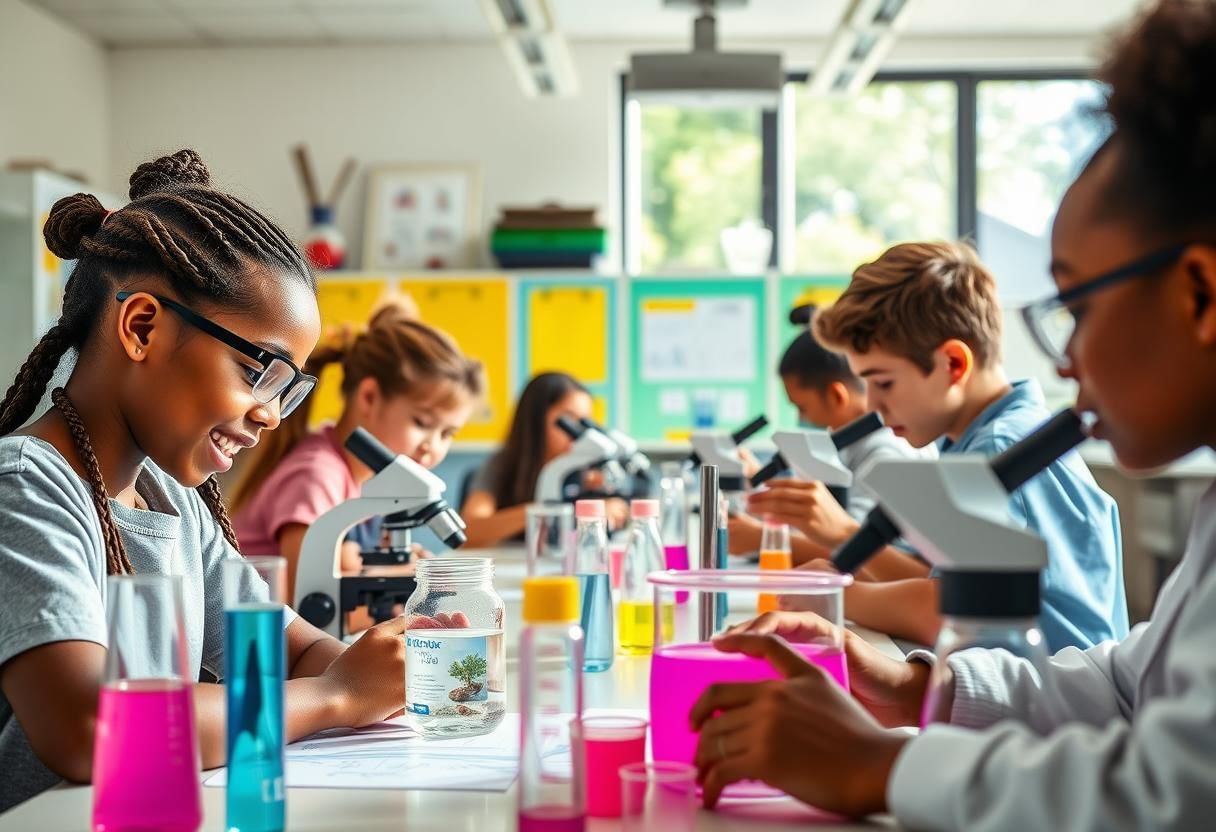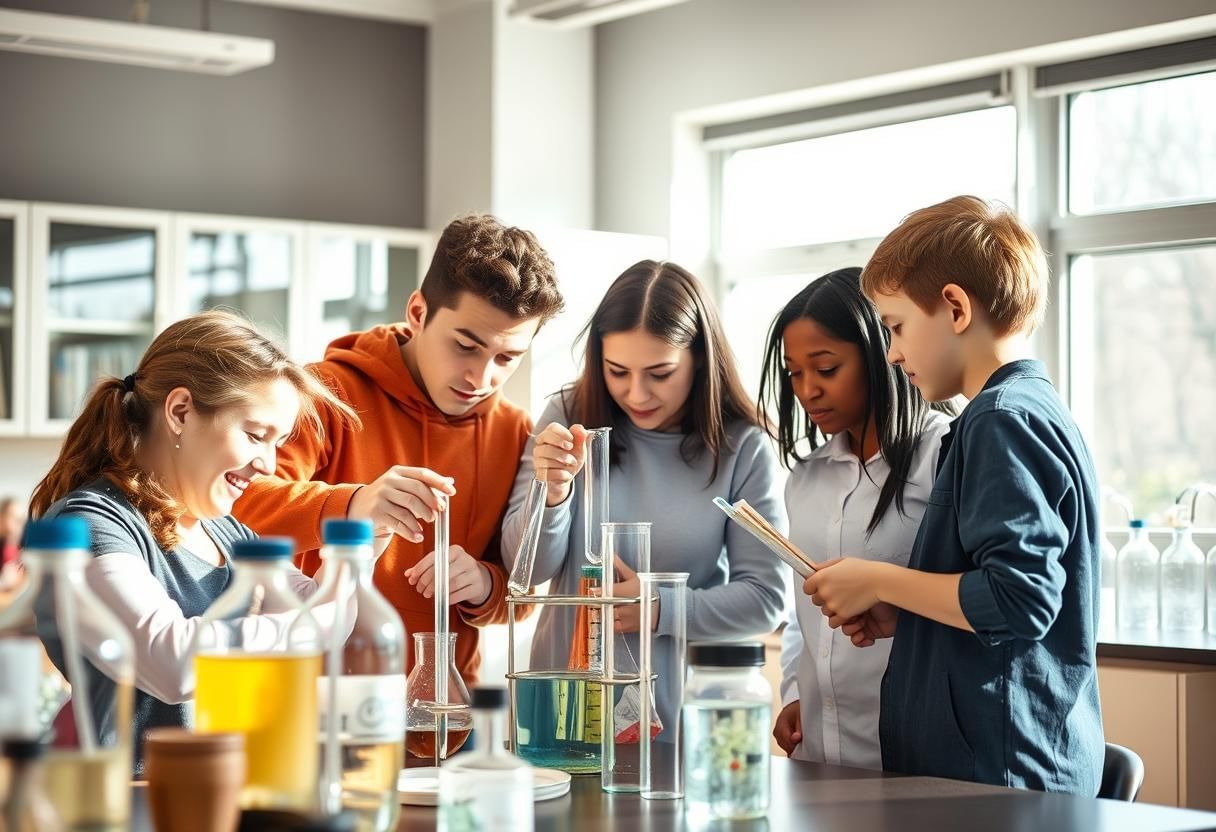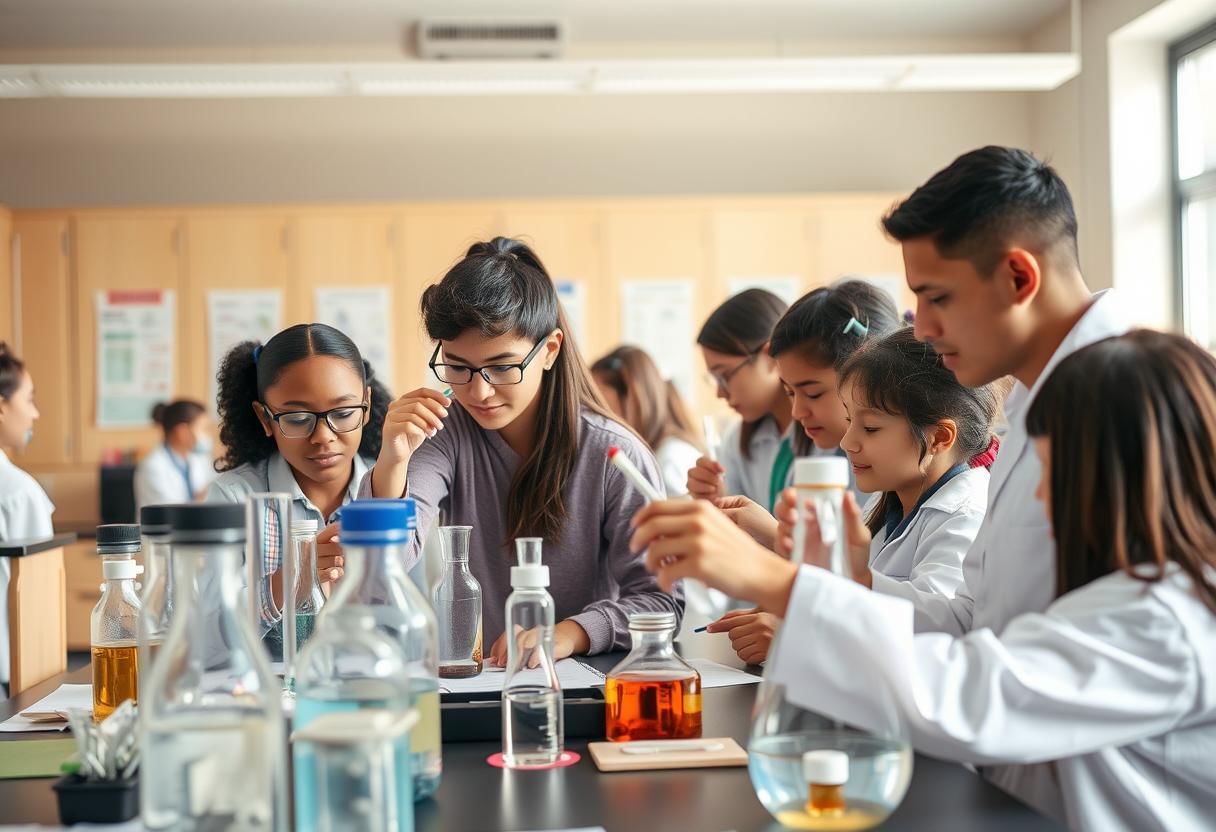Revision Notes: Nature & Structure of Sciences | Science & Pedagogy Paper 2 for CTET & TET Exams - CTET & State TET PDF Download
Introduction
 Natural phenomena exploration
Natural phenomena exploration
Science is all about exploring the amazing things in nature and figuring out how our world works through experiments. It’s the foundation of our everyday lives, helping us think critically and understand what we see around us. The word 'science' comes from a Latin word that means knowledge, so at its core, science is a way of gaining knowledge by investigating.
What is Science?
- Science looks at the amazing things in nature.
- It involves experimenting and finding out new things.
- Science is very important for our everyday lives.
- It is based on what we can see and observe.
- The word 'science' comes from Latin and means knowledge.
Definition of science
 Universal Science Benefits
Universal Science Benefits
- According to BF Skinner, science is the first of all a set of attitudes it is a disposition to deal with facts rather than with what someone has said about them.
- According to Kothari Commission, science is universal and so can be its benefits its material benefits are immense and far-reaching industrialization of agriculture and release of nuclear energy.
- According to Einstein, science is an attempt to make the chaotic diversity of our sense experience corresponded to logically uniform systems of thought.
Nature of Science
 Scientific Exploration Tools
Scientific Exploration Tools
- Science provides the essential knowledge needed for cultural advancement.
- It is an ongoing journey, constantly improving and expanding our comprehension of the universe.
- By offering solutions to everyday problems, science nurtures a scientific attitude, curiosity, and perspective in children.
- Science trains children to cultivate a scientific mindset and creativity.
- It highlights the significance of open-mindedness, intellectual integrity, creative thinking, and dedication.
- Science helps build self-confidence and a systematic approach to daily challenges.
- Science is both a product and a process. As a process, it signifies methods to discover the truth; as a product, it provides a structured body of knowledge. The process aspect of physical science is more crucial than its product aspect, as it continually seeks facts and truth.
- It uses the scientific method, known for its reliability, validity, objectivity, impartiality, and verifiability.
Science is the culmination of human effort, forming a structured body of knowledge comprising facts, concepts, generalizations, laws, and theories based on extensive knowledge accumulation.
Science studies the properties of matter and energy, the composition of various substances, and their interactions. It explains natural phenomena according to established laws of nature. Moreover, physical science encourages children to develop a scientific mindset along with various scientific virtues and values.
The scope of science teaching in schools
 Science Classroom Activities
Science Classroom Activities
- Nurturing Creativity: Science education aims to inspire creativity in students, encouraging them to think outside the box and come up with innovative ideas.
- Promoting Open-Mindedness: Teaching science fosters an open-minded approach, where students learn to consider different perspectives and possibilities.
- Raising Awareness of Environmental and Life Sciences: Science education increases awareness of important topics related to the environment and life sciences, helping students understand their relevance in today's world.
- Training in Scientific Equipment: Students are trained in the maintenance and use of scientific equipment, equipping them with practical skills necessary for scientific exploration.
- Emphasising the Scientific Method: The scientific method is emphasised as a crucial problem-solving tool, teaching students how to approach issues systematically and analytically.
- Developing Critical Thinking and Curiosity: Science education focuses on developing thinking, reasoning, curiosity, and a scientific attitude, fostering a mindset conducive to inquiry and exploration.
- Preparing for Life Changes: Science teaching prepares children for future life changes, equipping them with knowledge and skills that are relevant and applicable in various contexts.
Primary Stage: At this stage, the emphasis is on the child's environment, which includes social, physical, and biological aspects. Science education during this phase should focus on helping children understand and explore their immediate surroundings and the various factors that influence their lives. Secondary Education: As students progress to secondary education, the focus shifts to gaining knowledge in specific branches of science. At this stage, science should be taught as distinct subjects: physics, chemistry, and biology. This approach allows students to delve deeper into each field and understand the principles and concepts that govern them.
General Principle in the Teaching of Science
 Collaborative Science Learning
Collaborative Science Learning
- Constructivist Principles: These principles emphasize the importance of students actively constructing their own understanding of scientific concepts through hands-on experiences and interactions.
- Discovery Principles: This approach encourages students to explore and discover scientific phenomena on their own, fostering a sense of curiosity and investigation.
- Brain-Based Principles: These principles are grounded in how the brain learns best, incorporating strategies that align with cognitive processes and promoting effective learning environments.
- Collaborative Principles: Collaborative learning involves students working together, sharing ideas, and engaging in discussions to enhance their understanding of scientific concepts.
- Multiple Intelligences and Learning Styles: Recognizing that students have different strengths and preferences in how they learn, this principle advocates for diverse instructional approaches to cater to various intelligences and learning styles.
- Connecting to Students’ Interests and Experiences: To foster a deep understanding of scientific explanations, it's crucial to connect learning to students' interests and prior experiences, making the content relevant and engaging.
- Focusing on Core Ideas and Practices: This involves a deep exploration of essential scientific concepts, promoting meaningful understanding, and providing opportunities for students to practice science in real-world contexts.
- Equitable Opportunities for All Students: Ensuring that all students have equal access to learning science and opportunities to engage in scientific practices is fundamental to effective science education.
Need of Science Education in Schools
 Science Education in Schools
Science Education in Schools
We are surrounded by technology and the products of science every day. Public policy decisions that affect every aspect of our lives are based and scientific evidence. As children grow up in an increasingly, technologically and scientifically advanced world, they need to be scientifically literate to succeed.
School education in daily life, especially at the school stage, is necessary for several reasons.
- The rapid growth of science and technology is influencing almost all walks of life. It is resulting in the production of new materials.
- Significant portions of the students terminate their studies after primary education and therefore there is an imperative need to provide them education on a continuing basis about the ongoing developments in the areas of science and technology having direct relevance to life.
- In the views of the nature of science, the scientific laws and principles being the generalization of common experiences, the need for relating science with the life of a community.
Teaching of Science wants to integrate from Students
 Environmental Stewardship Education
Environmental Stewardship Education
- Critical Problem Solver: Developing the ability to analyze and solve complex problems effectively.
- Responsible Steward of Nature: Encouraging environmental awareness and responsibility.
- Informed Decision-Maker: Equipping students to make informed choices based on scientific knowledge.
- Effective Communicator: Promoting clear communication of scientific ideas and information.
- Scientifically, Technologically, and Environmentally Literate: Ensuring students are well-versed in these critical areas and contribute positively to society.
- Competencies for the Workplace: Preparing students with skills necessary for the job market and a knowledge-based society.
- Innovative and Creative: Fostering creativity and innovation in scientific thinking and problem-solving.
Science is essential for enhancing various aspects of life, such as health, technology, and environmental sustainability. It has become a valuable tool for guiding our daily activities and lifestyles, making it a crucial component of educational practices.
|
35 videos|145 docs|32 tests
|
FAQs on Revision Notes: Nature & Structure of Sciences - Science & Pedagogy Paper 2 for CTET & TET Exams - CTET & State TET
| 1. What is the nature of sciences as discussed in the CTET & State TET exams? |  |
| 2. How is the structure of sciences important in the CTET & State TET exams? |  |
| 3. How are the principles of sciences applied in teaching and learning in the CTET & State TET exams? |  |
| 4. What are the key concepts related to the nature and structure of sciences that are commonly tested in the CTET & State TET exams? |  |
| 5. How can teachers integrate the understanding of the nature and structure of sciences into their teaching practices for the CTET & State TET exams? |  |
















